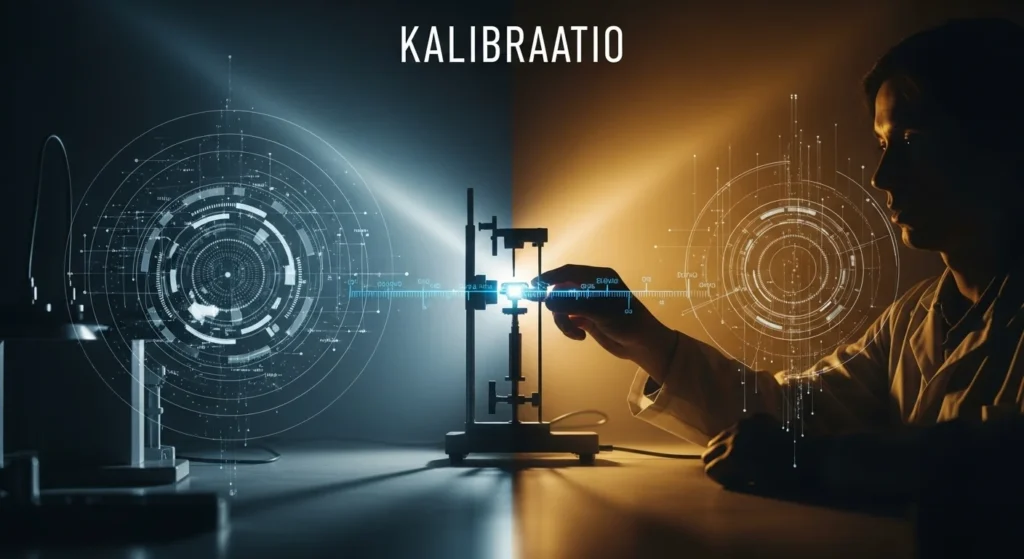Kalibraatio might not be a term that comes up in everyday conversation, but its importance cannot be overstated. It’s the fine-tuning process that keeps your equipment running smoothly and efficiently. Whether you’re managing a factory floor or using high-tech instruments in your lab, calibration ensures accuracy and reliability in your operations.
Picture this: machinery that malfunctions can lead to costly downtime, inaccurate measurements, or even safety hazards. That’s where kalibraatio steps in as an unsung hero. By maintaining the precision of your tools and devices, it plays a crucial role in enhancing their longevity and performance. Let’s dive deeper into why regular calibration is essential for both productivity and profitability.
What is Kalibraatio and why is it important?
Kalibraatio, or calibration, refers to the process of configuring equipment to provide accurate measurements. This practice ensures that tools and devices operate within specified parameters.
Precision is key in various industries—from manufacturing to healthcare. When instruments are correctly calibrated, they deliver reliable results that can significantly impact operations.
Neglecting kalibraatio can lead to errors. Inaccurate readings may result in faulty products or compromised safety measures. The consequences of such mistakes could be costly, both financially and reputationally.
In an ever-evolving technological landscape, staying up-to-date with calibration practices is essential for maintaining quality standards. Regular checks not only enhance performance but also extend the lifespan of your equipment—a win-win scenario for any business striving for excellence.
The benefits of regular calibration
Regular calibration offers numerous advantages that can significantly enhance equipment performance. One of the most vital benefits is accuracy. Consistent calibration ensures your instruments provide precise measurements, reducing the risk of errors in production or testing.
Another key benefit is improved efficiency. Well-calibrated equipment operates optimally, which can lead to increased productivity and reduced downtime. This means less time spent troubleshooting issues and more time focused on core operations.
Calibration also extends the lifespan of your equipment. By maintaining precision in its functionality, you prevent unnecessary wear and tear, saving money on early replacements.
Moreover, regular calibration boosts compliance with industry standards. Many sectors require specific levels of accuracy for safety and regulatory reasons. Staying compliant not only avoids penalties but enhances your reputation as a reliable operator in your field.
It fosters trust among clients and stakeholders who depend on consistent results from calibrated tools or machinery.
How to choose a calibration service provider
Choosing the right calibration service provider can significantly impact your equipment’s performance. Start by looking for a company with industry certifications. These indicate that they meet specific standards in quality and reliability.
Next, consider their experience. A well-established provider usually has a proven track record and understands various equipment types across different sectors.
Customer reviews are invaluable. Look for feedback on their responsiveness, service quality, and accuracy of calibrations.
It’s also essential to assess their capabilities. Ensure they have the necessary tools and expertise for your specific equipment needs.
Don’t overlook customer support. A responsive team will be crucial if you encounter issues or need assistance down the line. Being thorough in your selection process can pay off significantly as it enhances both longevity and performance of your equipment through proper Kalibraatio.
Common equipment that requires calibration
Many industries rely on specific equipment that requires regular calibration to maintain precision and accuracy. One common type is weighing scales, used in laboratories, pharmacies, and food processing. Accurate weight measurements are crucial for compliance and quality control.
Another essential tool is temperature sensors. These devices are vital in pharmaceuticals and food safety sectors where precise temperatures can impact product integrity.
Pressure gauges also fall into this category. They play a critical role in manufacturing processes, ensuring systems operate within safe parameters.
Additionally, flow meters are key for monitoring fluid dynamics in various applications like HVAC systems or water treatment facilities.
Electrical testing equipment needs calibration to ensure the reliability of readings during maintenance work or troubleshooting issues. Regular checks help avert costly mishaps across different fields by maintaining optimal performance levels of these instruments.
The cost of calibration vs the cost of replacing equipment
When considering maintenance for your equipment, the costs associated with calibration often pale in comparison to replacement expenses. Calibration is an investment that extends the life of your tools and machinery.
Replacement can involve not only purchasing new equipment but also training staff on its operation. This transition period can disrupt workflow and productivity, leading to further financial losses.
Calibration ensures accuracy and precision without the need for drastic changes. Regularly calibrated instruments perform better, reducing wear and tear over time.
Additionally, uncalibrated machines may lead to errors that incur hefty costs in production delays or faulty products. By investing in regular calibration services, you protect against these hidden expenses while maintaining peak performance levels across all operations.
DIY calibration vs professional calibration services
DIY calibration can seem appealing. It offers cost savings and a sense of control over your equipment. However, the accuracy might be compromised without proper tools or expertise.
Many people underestimate the intricacies involved in effective calibration. Even minor adjustments can lead to significant errors if not done correctly. This is where professional services shine.
Professionals come equipped with specialized tools and experience, ensuring precision that DIY methods often lack. They stay updated on industry standards and best practices, which is critical for compliance in regulated environments.
Choosing to go the professional route also means less downtime for your operations. While it may involve an upfront cost, consider it an investment in reliability rather than simply another expense.
Conclusion: Investing in Kalibraatio for long-term success
Investing in Kalibraatio is essential for the long-term success of any business that relies on precision equipment. Regular calibration not only enhances the performance and accuracy of your tools but also significantly extends their lifespan. This proactive approach can lead to substantial cost savings over time, as it minimizes the risk of unexpected breakdowns and costly replacements.
Choosing a reputable calibration service provider ensures that your equipment meets industry standards and operates efficiently. While DIY calibration might seem tempting, professional services offer expertise that often leads to better results. Prioritizing Kalibraatio is not just about maintaining compliance; it’s about fostering reliability in your operations and safeguarding your investment.
By focusing on regular maintenance through proper calibration practices, businesses can thrive with confidence in their equipment’s capabilities. The benefits are clear: optimized performance, reduced costs, and enhanced longevity of vital machinery make investing in Kalibraatio a strategic move for sustainable growth.






